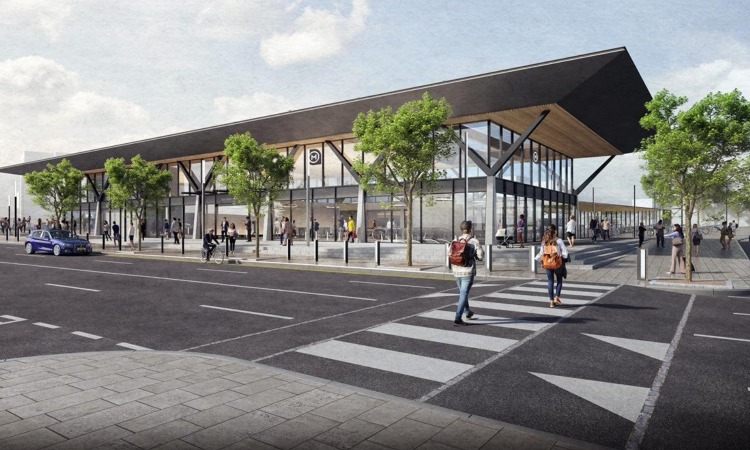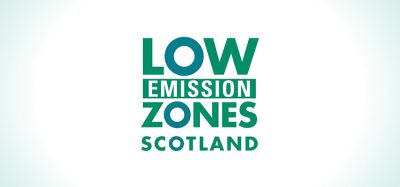Ireland’s MetroLink rail project takes next step following Cabinet agreement
- Like
- Digg
- Del
- Tumblr
- VKontakte
- Buffer
- Love This
- Odnoklassniki
- Meneame
- Blogger
- Amazon
- Yahoo Mail
- Gmail
- AOL
- Newsvine
- HackerNews
- Evernote
- MySpace
- Mail.ru
- Viadeo
- Line
- Comments
- Yummly
- SMS
- Viber
- Telegram
- Subscribe
- Skype
- Facebook Messenger
- Kakao
- LiveJournal
- Yammer
- Edgar
- Fintel
- Mix
- Instapaper
- Copy Link
Posted: 6 July 2022 | Intelligent Transport | No comments yet
Upon completion, Ireland’s first of its kind MetroLink rail project will support the country’s climate ambitions and transform public transport in Dublin by improving interconnectivity with national rail links.


Credit: Transport for Ireland
Minister for Transport Eamon Ryan has announced that he has secured agreement from Cabinet to move forward with Ireland’s transformative MetroLink rail project.
The Minister brought the MetroLink Preliminary Business Case to Cabinet on 4 July 2022. Planning submission on the public transport ‘megaproject’, which will transform public transport in Dublin and improve interconnectivity with national rail links, will be lodged in September.
MetroLink is a transformative piece of new public transport infrastructure, the first of its kind in Ireland, and will consist of a fully segregated railway – most of which will be underground – running from north of Swords to Charlemont in the south of Dublin City Centre. The route will include 16 stations and serve multiple residential communities such as Swords, Ballymun and Glasnevin, as well as the City Centre, Dublin Airport, and major employment, education, transport and other centres.
When operations commence, there will be trains every three minutes during peak periods, which can rise to every 90 seconds by 2060 with the system capable of carrying up to 20,000 passengers per hour in each direction.
A metro for Dublin has been in development in various forms for more than two decades. Ireland remains one of only a small number of countries in Europe without a metro in its biggest city or a rail connection to its main international airport. The National Development Plan (NDP) 2021-2030 specifically lists MetroLink as one of its strategic investment priorities and it is fully aligned with the Climate Action Plan 2021 and other major strategic plans.
Minister Ryan said: “This project in various guises has been on the table now for two decades, but the government’s decision on the MetroLink Preliminary Business Case marks a significant milestone. Now this exciting transport megaproject starts to become a reality. We are giving the green light to a transport system that will be integral to the city and the country’s sustainable development in this century, and into the next. MetroLink is hardwired to our climate ambitions. It will provide over 1 billion carbon neutral, fully electrified, passenger trips by 2050. Over 175,000 people and 250,000 jobs will be accessible to the stations by foot alone. By interchanging with other public transport systems such as DART and Luas, MetroLink connects to more than a million people in the Dublin area, and more across Ireland.”
Government of Ireland approves Dublin’s BusConnects programme
Minister McGrath said: “There is widespread agreement as to the importance of progressing the MetroLink project as a means of connecting communities, businesses, transport hubs and education settings across Dublin. Our task now is to ensure that the scheme progresses in a timely manner with protecting the interests of the taxpayer as a central tenet of the project.”
After reviewing the options and figures, the Department of Transport recommended approval of the MetroLink project as proposed by Transport Infrastructure Ireland (TII) and the National Transport Authority. While it is too early to give a precise project cost as it has yet to go through the planning and procurement stages, a central scenario provides an indicative capital delivery cost of €9.5 billion. A more exact cost will be known following planning permission and procurement process.
The analysis shows that MetroLink will deliver benefits to the Irish economy and society to the tune of €13.7 billion over 60 years, well in excess of expected project costs.
Following this decision, TII will submit a planning application for the MetroLink route to An Bord Pleanála in September 2022, with the procurement process commencing in 2023. Dependent on the outcome of the planning and procurement processes, construction of MetroLink is earmarked to commence in 2025 with a view to operation in the early 2030s.
If you liked this, you may also be interested in:
▶ Ireland’s NTA unveils €600 million investment in BusConnects Cork
▶ Go-Ahead Group continues expansion of bus business in Ireland
Related topics
Accessibility, Air Quality, Infrastructure & Urban Planning, Mobility Services, Public Transport, Sustainable Urban Transport
Related modes
Rail
Related cities
Dublin
Related countries
Ireland
Related organisations
Department for Transport (DfT), Government of Ireland, National Transport Authority (NTA), Transport Infrastructure Ireland
Related people
Eamon Ryan







